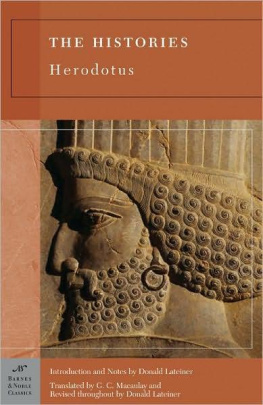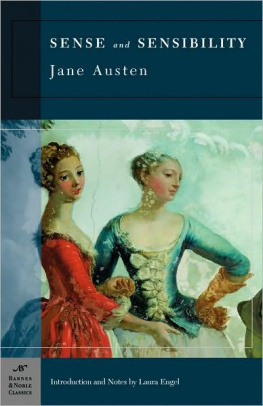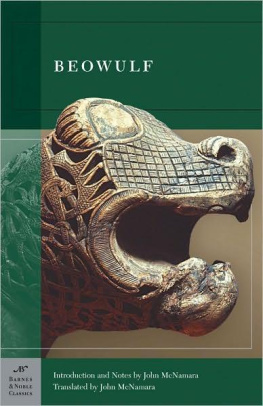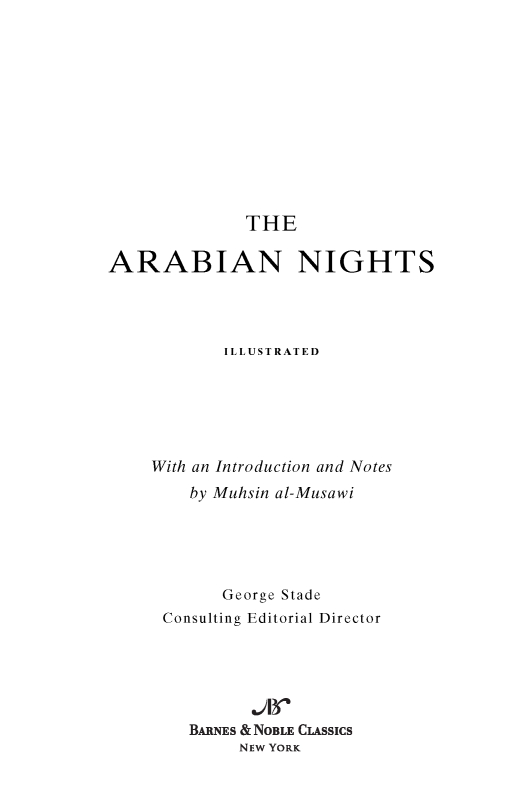
Table of Contents
FROM THE PAGES OF THE ARABIAN NIGHTS
The grand vizier, who was the unwilling agent of this horrid injustice, had two daughters, the eldest called Scheherazade, and the youngest Dinarzade. The latter was a lady of very great merit; but the elder had courage, wit, and penetration in a remarkable degree. She studied much, and had such a tenacious memory, that she never forgot any thing she had once read. She had successfully applied herself to philosophy, physic, history, and the liberal arts; and made verses that surpassed those of the best poets of her time. (from The Introduction, page 9)
Oh sister, said Dinarzade, what a wonderful story is this! The remainder of it, said Scheherazade, is more surprising; and you will be of my mind, if the Sultan will let me live this day, and permit me to continue the story to-night. Shahriar, who had listened to Scheherazade with pleasure, said to himself, I will stay till to-morrow, for I can at any time put her to death, when she has made an end of her story.
(from The Story of the Merchant and the Genie, page 13)
The enraged Genie tried his utmost to get out of the vase, but in vain; for the impression of the seal of Solomon the prophet, the son of David, prevented him. (from The History of the Fisherman, page 31)
That you may know, madam, how I lost my right eye, and the reason why I have been obliged to take the habit of a calender, I must begin by telling you, that I am the son of a King.
(from The History of the First Calender, page 62)
Take this knife: it will serve you for an occasion that will presently arise. We are going to sew you up in this skin, in which you must be entirely concealed. We shall then retire, and leave you in this place. Soon afterwards a bird of most enormous size, which they call a roc, will appear in the air; and, taking you for a sheep, it will swoop down upon you, and lift you up to the clouds: but let not this alarm you. The bird will soon return with his prey towards the earth, and will lay you down on the top of a mountain. As soon as you feel yourself upon the ground, rip open the skin with the knife, and set yourself free.
(from The History of the Third Calender, page 103)
A man scarcely ever succeeds in any enterprise if he has not recourse to the opinions of enlightened persons. No man becomes clever, says the proverb, unless he consults a clever man.
(from The Story Told by the Tailor, page 170)
What contributed, perhaps, more than any thing else to the embarrassment of Noureddins affairs, was his extreme aversion to reckon with his steward.
(from The History of Noureddin and the Beautiful Persian, page 230)
You judge unjustly, and in a short time you shall yourself be judged.
(from The History of Noureddin and the Beautiful Persian, page 262)
He did not, however, dare to explain his real sentiments to the king, who could not have endured the idea that his daughter had bestowed her heart on any other than the man whom he should present to her.
(from The History of Camaralzaman, page 291)
He who is poor is regarded but as a stranger, even by his relations and his friends. (from The Sleeper Awakened, page 334)
I am no longer your son, nor Abou Hassan, I am assuredly the Commander of the Faithful. (from The Sleeper Awakened, page 359)
I assure you that my sufferings have been so acute that they might deprive the greatest miser of his love of riches.
(from The History of Sindbad the Sailor, page 477)
Three or four days after we had set sail we were attacked by corsairs, who easily made themselves masters of our vessel, as we were not in a state for defence. Some persons in the ship attempted to make resistance, but their boldness cost them their lives. I and all those who had the prudence to submit quietly to the corsairs were made slaves. After they had stripped us, and clothed us in rags instead of our own garments, they bent their course towards a distant island, where they sold us.
(from The Seventh and Last Voyage of Sindbad the Sailor, page 513)
All these fatigues being at last surmounted, I arrived happily at Baghdad.
(from The Seventh and Last Voyage of Sindbad the Sailor, page 516)
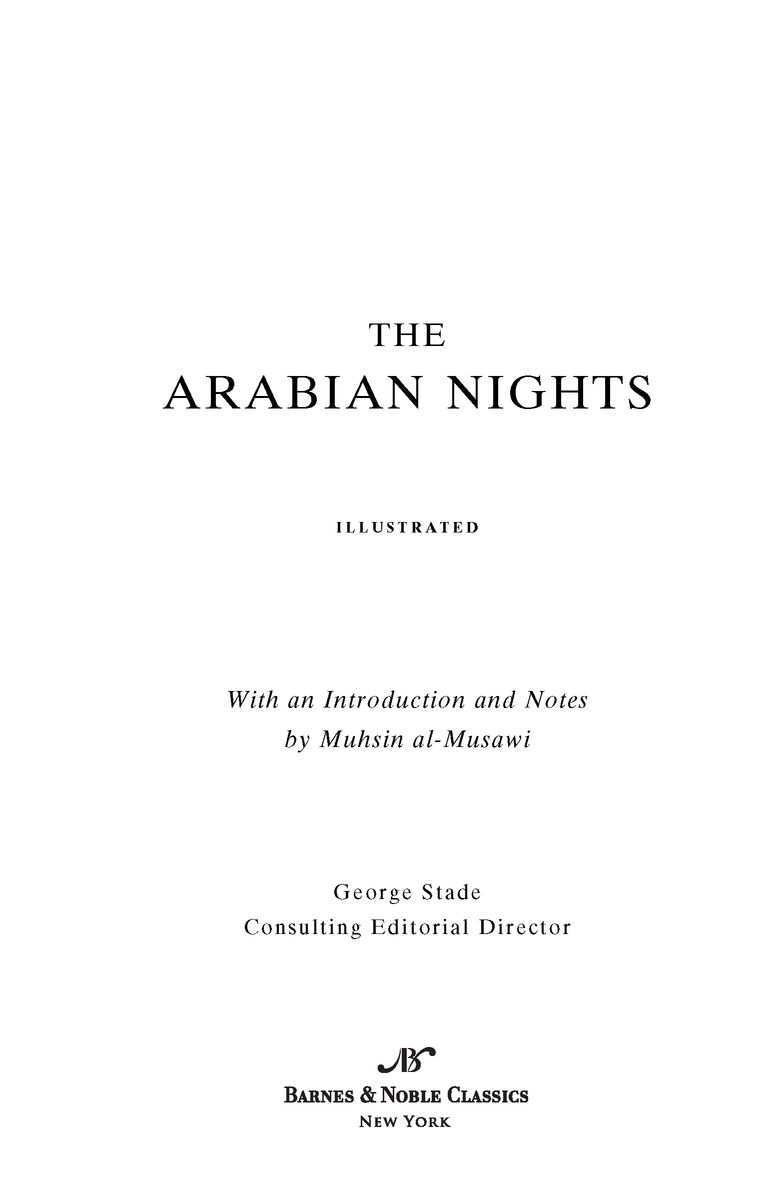
THE ORIGIN AND EVOLUTION OF THE ARABIAN NIGHTS
According to legend, the stories that make up the Arabian Nights are the episodic narrative of an extended, interwoven tale told by Scheherazade to her new husband, a king named Shahriar. His first wife had committed adultery and, stung by her betrayal and now mistrusting of all women, Shahriar has married several times since, each time executing the new bride the morning after the wedding. But the clever Scheherazades story telling so captivates the king that he repeatedly stays her execution and finally abandons it altogether. This tale frames an entire collection of stories that intertwine with one another while, by means of meandering, tangential detours, they hold the audience in suspense, just as they did the unwitting king.
The Arabian Nights originated in the oral folk traditions of several cultures, including those of India, Iran (Persia), Iraq, Egypt, and Turkey. The original compilation may have been an Islamic adaptation of an earlier Persian manuscript called Hazar Afsanah (A Thousand Tales) that was translated into Arabic in the ninth century. Although the manuscript is now lost, tenth-century Islamic scholars mention such a work, which had notable similarities to the Arabian Nights. By the end of the thirteenth century, the principal tales were compiled and written down. The books Arabic title, Alf layla wa layla, means Thousand and One Nights; over time, the collections anonymous editors added new tales to justify that title.
The popularity of the Arabian Nights in the West began with a French Orientalist named Antoine Galland. In 1704 his translation of the work into French introduced the exotic tales to a welcoming European audience and gave rise to a cottage industry of translations and imitations to feed Europes (especially Englands) newly stimulated appetite for the Orient. Several notable translations into English followed, one by Edward William Lane in 1841 and John Paynes in 1884. Sir Richard Burtons translation (1885-1888) is the most renowned, in part because it retained the explicit erotic quality of the original. The Arabian Nights comprises a variety of genres, from adventure tales to love stories, from comedies to tragedies, from spiritual legends to historical accounts. Through the ages, painters, novelists, poets, composers, and filmmakers have drawn inspiration and material from its pages. Indeed, many of the Arabian Nights stories have merged with Western folklore and are now as familiar to readers as the fairy tales of the Brothers Grimm and the stories of Hans Christian Andersen.
THE WORLD OF THE ARABIAN NIGHTS
| 224 C.E. | The Sassanid dynasty is established in Persia. |
| 330 | Under Constantine, the Roman Empire moves its capital to Con stantinople. |
| 570 | Muhammad, the prophet of Islam, is born in the Arabian town of Mecca. |
| 614 | Persian armies capture the city of Jerusalem. |
| 622 |


